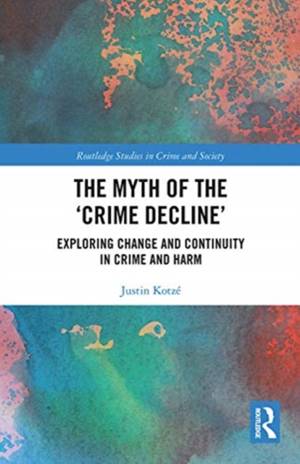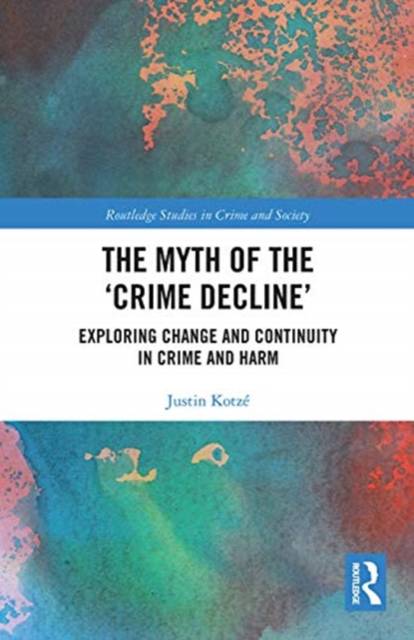
- Retrait gratuit dans votre magasin Club
- 7.000.000 titres dans notre catalogue
- Payer en toute sécurité
- Toujours un magasin près de chez vous
- Retrait gratuit dans votre magasin Club
- 7.000.0000 titres dans notre catalogue
- Payer en toute sécurité
- Toujours un magasin près de chez vous
Description
The Myth of the 'Crime Decline' seeks to critically interrogate the supposed statistical decline of crime rates, thought to have occurred in a number of predominantly Western countries over the past two decades. Whilst this trend of declining crime rates seems profound, serious questions need to be asked. Data sources need to be critically interrogated and context needs to be provided. This book seeks to do just that.
This book examines the wider socio-economic and politico-cultural context within which this decline in crime is said to have occurred, highlighting the changing nature and landscape of crime and its ever deepening resistance to precise measurement. By drawing upon original qualitative research and cutting edge criminological theory, this book offers an alternative view of the reality of crime and harm. In doing so it seeks to reframe the 'crime decline' discourse and provide a more accurate account of this puzzling contemporary phenomenon. Additionally, utilising a new theoretical framework developed by the author, this book begins to explain why the 'crime decline' discourse has been so readily accepted.
Written in an accessible yet theoretical and informed manner, this book is a must-read for academics and students in the fields of criminology, sociology, social policy, and the philosophy of social sciences.
Spécifications
Parties prenantes
- Auteur(s) :
- Editeur:
Contenu
- Nombre de pages :
- 188
- Langue:
- Anglais
- Collection :
Caractéristiques
- EAN:
- 9780367786656
- Date de parution :
- 31-03-21
- Format:
- Livre broché
- Format numérique:
- Trade paperback (VS)
- Dimensions :
- 156 mm x 234 mm
- Poids :
- 290 g

Les avis
Nous publions uniquement les avis qui respectent les conditions requises. Consultez nos conditions pour les avis.






